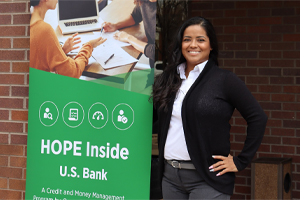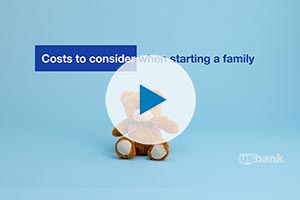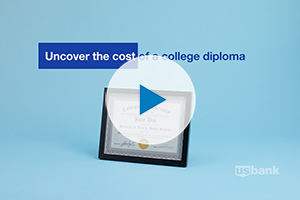Financial well-being is a lifestyle choice that starts by taking a few important steps.
Financial security is something we all strive for, but it’s easier said than done. Maybe you’re living on your own and managing bills for the first time. Perhaps you’re trying to get out debt. Or you could be dealing with unexpected expenses that have shifted your budget. Whatever the case, you’re not alone in experiencing financial instability. And when you’re in it, it can feel like things are too overwhelming to change.
The good news is that anyone can become financially fit again. It just takes discipline, patience and a clear plan. Use the checklist below to start your journey toward better financial health. Give yourself a month to go through the items below and change your habits – aim to cross off a handful of tasks each week. Use the momentum you build throughout the month as the foundation for a brighter financial future and long-term financial security.
Decide what drives you
Every success story starts with a reason to believe. Before you start your financial inventory, hone in on your unique motivations.
- Set your goals: Are you trying to lower your debt? Saving for a big trip? Building a safety net? Write down your top three goals. Prioritize them in order of importance (or urgency).
- Add purpose to your priorities: Next to each of your goals, complete the following: “When I reach this goal, I’ll feel _____ because I’ll be able to _____.” Associating a desired feeling that your goal will help you achieve is a powerful way to stay on track.
Track your spending
Keep a running monthly average of the categories below. Make sure you’re not spending more than you earn.
- Calculate monthly expenses: Include your rent or mortgage, health/auto/business insurance, utilities, etc.
- Tally annual account management fees: Include checking, savings, investments, credit cards, etc. Divide by 12 for the amount you need to save each month.
- Jot down other yearly expenses: These are licenses, web hosting services, tax prep and subscriptions that renew annually. Divide by 12 to calculate monthly expense.
- Summarize monthly spending: How much do you spend each month on groceries, gas, parking and entertainment? A scan of the past four to six months (check your receipts, bank statements and credit card statements) can be eye-opening – and helpful for deciding where to start cleaning house.
Deconstruct your debt
Add the following monthly totals to your running tally of expenses. Think about whether refinancing or consolidating debt might give you some room to breathe.
- Calculate your total debt: Include auto loans, retail and credit card balances, student loans, business loans, lines of credit and mortgages.
- Add some debt detail: Next to each line item, record the following for tracking purposes: minimum monthly payment, interest rate and expected payoff date.
Assess your assets
Assets and income offset your expenses. It’s often easier to cut expenses than to add income, but you may be able to make gains if you work a second job or sell big-ticket items you no longer need.
- Average your monthly pre-tax income: Include odd jobs, side hustles, freelance gigs and art or crafts you sell at markets or online.
- List your savings and investment accounts: Total the current balances in each of those accounts (retirement/pension, investments, etc.).
Start taking action
This is where the real adulting begins. You’re building healthy habits that over time will lead to prosperity and financial fitness. Congratulations!
- Monitor progress: Stay on top of where your money is going and when it’s coming in*, and you’ll be able to make decisions based on the reality of your finances – not something you remember from last week or something you hope for next month. *Apps such as U.S. Bank's mobile app can automate much of this process, organizing your spending and income into categories. Certain apps even give you a preview of upcoming monthly bills so you can plan ahead.
- Commit to saving for the future: Set a responsible, reasonable yearly saving goal for each of the following: retirement fund, emergency fund, debt reduction and major purchase(s). Then divide each by 12, and put this amount away in a savings account monthly to avoid an end-of-year scramble.
- Set up auto bill pay (or calendar alerts): Stop wasting money on late fees and interest charges. While you’re at it, add overdraft protection and/or alerts to your accounts.
- Bundle up: Utilities and telecommunications companies can often save you money by combining their services into a package, but you almost always have to ask.
- Review your spending and debt habits: Reflect on six to eight of your unhealthy (or potentially risky) debt and spending behaviors. Don’t judge; just write everything down. For example: “I use credit cards for things I don’t really need,” “I spend when I feel stressed or emotional,” or “I rationalize splurges I didn’t budget for.”
- Commit to financial fitness: Vow to replace each of your unhealthy habits with a positive behavior. Create habits you’ll want to stick with and that fit your long-term vision. For example: “I spend less than I earn,” “I pay off my credit card balances every month,” or “I prioritize debt reduction and savings over unnecessary purchases.” Repeating these sayings – or even writing them down on a sticky note where you’ll see it often – can help you stay on track for the future.
Download a PDF of the checklist.
Need help getting started? Make an appointment with a banker today!



















































































